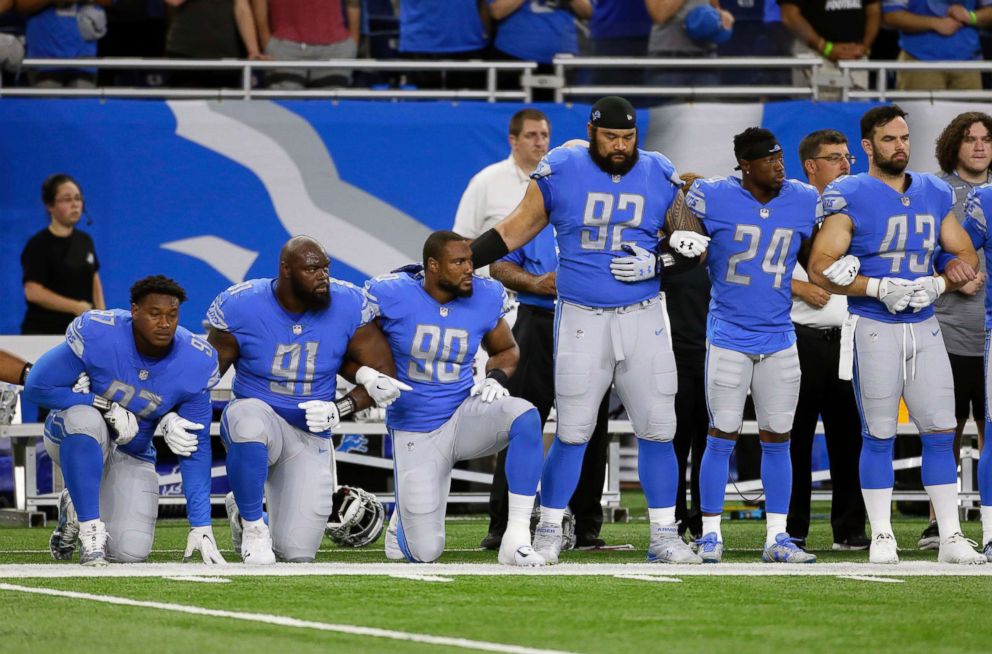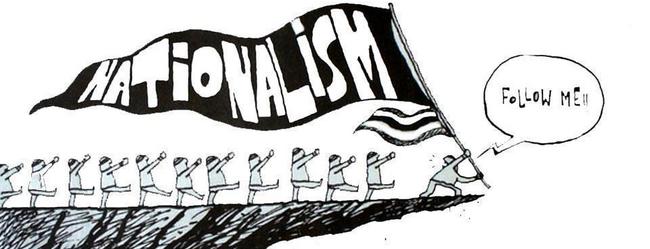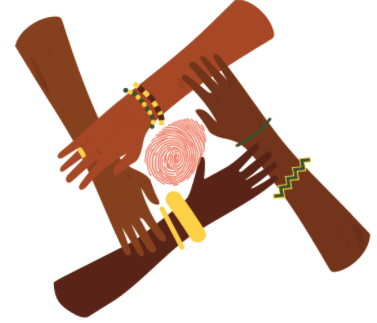We are all born into a nation—into a nationality. We learn the cultures and traditions around us. Some of us may not be as connected as others because we may have been born outside our place of nationality. But, to regard that as complete alienation would be wrong.
Depending on where we may be from, we could take great joy in sports, technology, science, astronomy, and other fields. We perhaps take pleasure in watching our country compete with others. For many, the recent cricket World Cup has been an opportunity to express these joys and support their country. Many even take leaves from work and put everything aside just to watch the matches. If you’re from a South Asian country, I’m sure you can relate. Depending on when you’re reading this, maybe you can still hear cheers, claps, screams, or cries in the background.

Nationalism. You support your country because you love it. You wish for nothing but its advancement and to celebrate it with others from your nation. As a nationalist or patriot, why would you shy away from celebrating your community and wish for nothing but love, glorification, and commitment to your nation?
The air is filled with cricket for many, but nationalism manifests itself in other forms. Your schools may have embedded national anthems into their morning routine. Having studied at an Indian school in the United Arab Emirates, I have experienced this. Perhaps there may even be a song that talks about brotherhood and unity. During my short study period at a school in India—I recall this being part of the routine.

Furthermore, we have been taught to respect certain professions too—the army especially. We may have learned this from our upbringing, school speeches, ethics in educational material, or through carefully curated content in other subjects. I remember how many prose and poetry pieces in my Hindi class would glorify the army’s sacrifices and talk about India’s military wins.
These concepts of nationalism and patriotism have been embedded in us from a very young age. You might not have ever self-proclaimed as a nationalist but could match these descriptions and more. At times, we use the terms nationalism and patriotism interchangeably. But what do these concepts actually mean?
What is nationalism and patriotism?
A simple google search refers to nationalism as support for one’s nation “especially to the exclusion or detriment of the interests of other nations.” The result for patriotism refers to it as “devotion and vigorous support for one’s country.” Yet, people use the terms interchangeably, ignoring the extreme connotations of both definitions.
For many, nationalism or patriotism has meant being proud of the culture you were born into. What do these terms mean to you? How do you express them?
Destructive nature of nationalism
While it may be adrenaline-rushed binding glue of solidarity for many, it erodes the cohesive glues of that society with others and even within itself in many ways. Nationalism, in many cases, is harmful to personal, social, and economic growth. This is not to say that it is of no good, but when harms exceed benefits, a reflection is imperative.

Nationalism inhibits the development of productive citizens
Picture nationalists. You see them walking around arm-in-arm, smiling. Occasionally, they pass by army personnel and sports stars and chant glorifications for them and the nation. Sweet and simple? Not so fast. They continue walking and start correcting everything that they think is wrong for the nation. They always look for ways to make their country be seen in good light. Even in cases where it is performing poorly, they will look for ways to praise their country. In this way, nationalists are hurtful to the development of productive citizens as they start resembling slaves whose job is to gas up the establishment.
Second, as George Orwell claimed, nationalists care about the most trivial things ever. I have not come across a better statement about the unproductiveness of enthusiastic nationalists than in Orwell’s Notes on Nationalism.

“Obsession. As nearly as possible, no nationalist ever thinks, talks, or writes about anything except the superiority of his own power unit. It is difficult if not impossible for any nationalist to conceal his allegiance. The smallest slur upon his own unit, or any implied praise of a rival organization, fills him with uneasiness which he can only relieve by making some sharp retort. If the chosen unit is an actual country, such as Ireland or India, he will generally claim superiority for it [in every possible field] not only in military power and political virtue, but in art, literature, sport, structure of the language, the physical beauty of the inhabitants, and perhaps even in climate, scenery and cooking. He will show great sensitiveness about such things as the correct display of flags, relative size of headlines and the order in which different countries are named.“
From scholars and experts! researchers generally identify an inverse relationship between education levels and nationalism, i.e., the lower the level of education in a country, the more likely the people will be nationalists.
Countries use nationalism to evade responsibility and accountability
In the last few months, I have noticed a trend of double standards with India. It passed several problematic bills such as the Farmer’s Bills. Some foreign economists outside India commended the bills. This was celebrated by pro-government individuals. However, when people outside India commented against the Farm Bills and how the state treated farmers, it was termed a “foreign conspiracy,” and nationalists had never been angrier. What if not a negative manifestation of nationalism can we regard these evasions of accountability? What makes it heartbreaking is that the primary reason why these tactics work is not just because government personnel actively try to use them but because their naïve supporters—self-proclaimed nationalists—do not think for themselves.
Just as in a domino trail, one falling domino hits another, these happenings escalate. India, as a country with growing “nationalism”, is an example of this. Under the new government from 2014 onwards, several NGOs were banned for being “anti-Indian” and were accused of “sedition.”
The army is another entity that nationalists regard as perfect. In my discourse in Indian politics, many “nationalists” have aggressively defended the “honor” of the army. Sure, the military is an essential component of a nation and plays an important role that shouldn’t be ignored. But they are not divine creatures that can be separated from the human identity. “Nationalists” have spent undue time and energy defending militants responsible for excessive use of force and human rights violations.
Nationalism makes nations take harmful and divisive actions
In light of recent cricket events, India has effectively made a joke of its nationalism. In the aftermath of their defeat to Pakistan, Kashmiri students were attacked. People supporting Pakistan’s cricket victory were booked under the Unlawful Activities Prevention Act, a law usually used for terrorists. This is a perfect example of how unproductive and fragile uncontrolled nationalism can make a nation take ridiculous decisions.
Nationalism also makes people despise other communities; it increases discrimination, racism, xenophobia, and even hate crimes.
From scholars and experts! In a discussion at the United Nations University, panelists noted that xenophobia and prejudice were higher in countries where nationalism was heightened.
Indian majoritarianism, American anti-Chinese sentiment because of COVID, the rise of right-wing anti-immigration politics in Europe, and the pro-white view that Trump fostered are examples of destructive nationalism that created resentment for other communities.
Nationalism is a catalyst for populism and fascism
If nationalists have not already sent me slurs, this category would be their time to shine. Evidence suggests that nationalism is a strong catalyst for populism and fascism. Before moving ahead, I should define populism. In short, it is a political strategy that seeks to address the grievances of the ordinary people against certain elite groups or political institutions, often creating divisions among social groups in society.
Coming soon! an in-depth exploration, identification, and strategies to avoid becoming victims of populist deceptions. Don’t forget to subscribe to The Vigilant Mind to stay vigilant!
Remember Mussolini in Italy, Hirohito in Japan, the Ku Klux Klan in the U.S.A., or Adolf Hitler in Nazi Germany? Without infusing nationalist sentiment in their population, they would never have gained power. They used songs to create unity, a vision of a homogenous society free of evil, and symbolism holding their people together. They managed to convince large masses that certain sections of society had to be exterminated for the “greater good.” It is undeniable that many of these tactics are used even today in many nations.
Summary of the impact of modern nationalism
- Nationalism does provide ingroup solidarity, a sense of identity, and togetherness in overcoming societal issues (anti-colonial movements are strong examples of nationalism bringing good outcomes).
- Nationalism leads to unconstructive and unproductive actions.
- Nationalism hinders the growth and development of a society.
- Social psychology suggests that ingroup solidary that nationalism infuses creates resentment for outgroup members and causes discrimination, xenophobia, racism, and hate crimes.
- Nationalism paves the way for populist and fascist success.
What is the future of nationalism?
Ironically, the future of nationalism lies in its past. The well-known symbol of nationalism, the French Revolution, and the ideologies expounded by philosophers like Rousseau looked at nationalism as a force that kept civil society cohesive, productive, and on a quest for justice. These were measures against those who abused power or attempted to hurt the society. Unfortunately, many modern nationalists resemble pawns of Hitler where contaminated nationalist sentiments are injected by state leaders into the people rather than the people representing society. This is no surprise though, unfortunately, quite a few of these state leaders I’m referring to have openly expressed their admiration for Hitler’s ideas.
This makes me circle back to a point I make time and again. Why do we pretend to have come a long way from history thinking that we have learned from the past? In my post on The Cost of Being Apolitical, I discussed how the contemporary world is nothing but another time in history that needs social change. The world has not learned enough nor advanced enough. There is much room for improvement, and all of us should play a role in bringing this change. The way we define and display nationalism is one of the things that need to be transformed before it leads society into an abyss.
Can nationalism be good? How do we be good nationalists?
I am not a fan of classifying things as ‘good’ or ‘bad’ like a binary, but nationalist fervor and its consequences can be studied, and a comment can be made about its objective impact. Nationalism can have good or bad outcomes when you define effectiveness as maintaining a productive, cohesive, and plural society inclusive of all social groups.
In that regard, yes, nationalism can be good, even though many times it is not. Humans can alter their behavior, maintaining their nationalist sentiment without bringing its destructiveness. However, this requires an important distinction.
Which entity are we supporting? A good nationalist would hold communities and the people close to themselves. A nationalist whose actions are likely to be destructive would form the fan base of political parties and governments. For them, state officials serve as idols, prioritizing them over the community and even cultural elements.
Five essential steps in being good nationalists
- Your goal in social cohesion should prioritize the community of people, not the government. Good and productive nationalists criticize the government and support the people. When this mission flips, you become a pawn of ill political goals and cause more harm than good.

- The community of people should include all social groups. You don’t have to represent every social group because that is impossible, but the representation you do should not be at the detriment of other groups.

- You should not force any identities upon people. This applies even in cases where people value humanistic identities or a global vision beyond national borders. You might not be very pleased with state sovereignty being undermined, but if it does not hurt communities of people, you should not have a problem. Of course, there is an exception—if you want to disagree based on reason and engage in debate over the global versus national identity civilly, it is acceptable and maybe even recommended (discussing opposing viewpoints is good!).

- Finally, observe your strategies and priorities. Do not become the kind of person who gets annoyed over people not standing up for the national anthem, lists countries in an order that agitates you, or someone whose cultural aspirations grow over social cohesion and development.

- Remember when I said education and nationalism in their undesirable sense are generally inversely related? Understanding related social psychological aspects and political concepts will keep you immune from being used as a pawn by political actors and enhance your journey in the path of productive and cohesive nationalism. Stay vigilant and begin to think for yourself too.

I will not be surprised if people come to me and tell me that they do not want to adopt my quest of nationalism. Unfortunately, traversing on the soil of our planet still exist many individuals that believe in the supremacy of their group. If these people refuse to let go of their treacherous versions of nationalism, then it should be the duty of every dignified individual to endorse anti-nationalism for if nationalism is to support the state against certain communities, then it should have no space in our society, should we wish to prosper.
What are your experiences with and thoughts about nationalism? It is a field where people have such diverse experiences. I’d love to know what you have thought and experienced! Feel free to use the comments below to disagree, share, or add-on.

[…] against the state. Am I against the prevailing concept of nationalism, though? For sure. If we can redefine what nationalism means and how it’s manifested, I don’t want to scrap it. But if that’s not possible, then calling anyone “anti-national” […]
LikeLike
[…] However, through our democratically guaranteed rights, we must reverse the harm, wake up, and redefine nationalism to serve each other, unite, and stand firm against parties that wish to gain power by dividing […]
LikeLike
[…] more: ‘Nationalism Redefined.’ A series of thoughts on taking back what ‘Nationalism’ means from anti-people […]
LikeLike
[…] if this should be published. As a Hindu woman, how can I safeguard myself from the potential “nationalist” bigotry that will follow? As a Muslim, for how long do I have to keep trying to wake up my […]
LikeLike